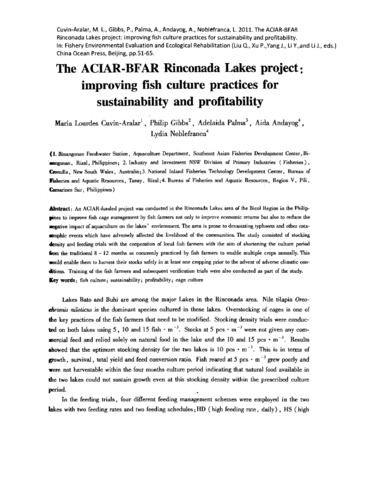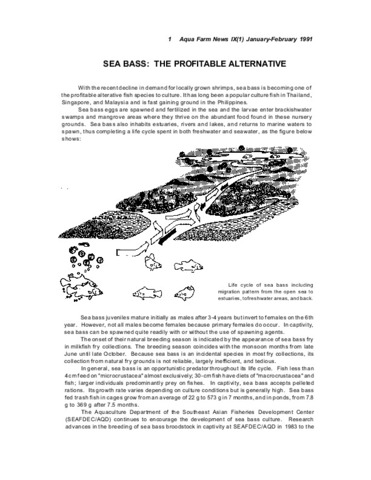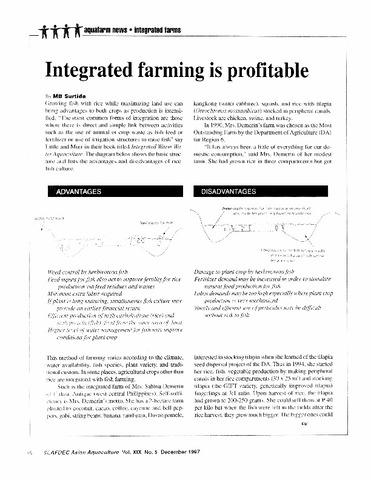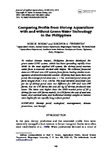The ACIAR-BFAR Rinconada Lakes project: Improving fish culture practices for sustainability and profitability
Share
Abstract
An ACIAR-funded project was conducted in the Rinconada Lakes area of the Bicol Region in the Philippines to improve fish cage management by fish farmers not only to improve economic returns but also to reduce the negative impact of aquaculture on the lakes’ environment The area is prone to devastating typhoons and other catastrophic events which have adversely affected the livelihood of the communities. The study consisted of stocking density and feeding trials with the cooperation of local fish farmers with the aim of shortening the culture period from the traditional 8-12 months as commonly practiced by fish farmers to enable multiple crops annually. This would enable them to harvest their stocks safely in at least one cropping prior to the advent of adverse climatic conditions. Training of the fish farmers and subsequent verification trials were also conducted as part of the study.
Subject
Collections
Related items
Showing items related by title, author, creator and subject.
-
Sea bass: The profitable alternative
Southeast Asian Fisheries Development Center, Aquaculture Department (Aquaculture Department, Southeast Asian Fisheries Development Center, 1991) -
Integrated farming is profitable
Surtida, Marilyn B. (Aquaculture Department, Southeast Asian Fisheries Development Center, 1997)Growing fish with rice while maximizing land use can bring advantages to both crops as production is intensified. Details are given of the basic structure of rice field aquaculture, listing the major advantages and ... -
Comparing profits from shrimp aquaculture with and without green-water technology in the Philippines
Bosma, Roel H.; Tendencia, Eleonor (Taylor & Francis, 2014)To reduce disease impact, Philippine farmers developed the green-water (GW) system, which has been spreading rapidly since 2008. In the most applied GW-system, the shrimp pond receives water from a reservoir stocked with ...






